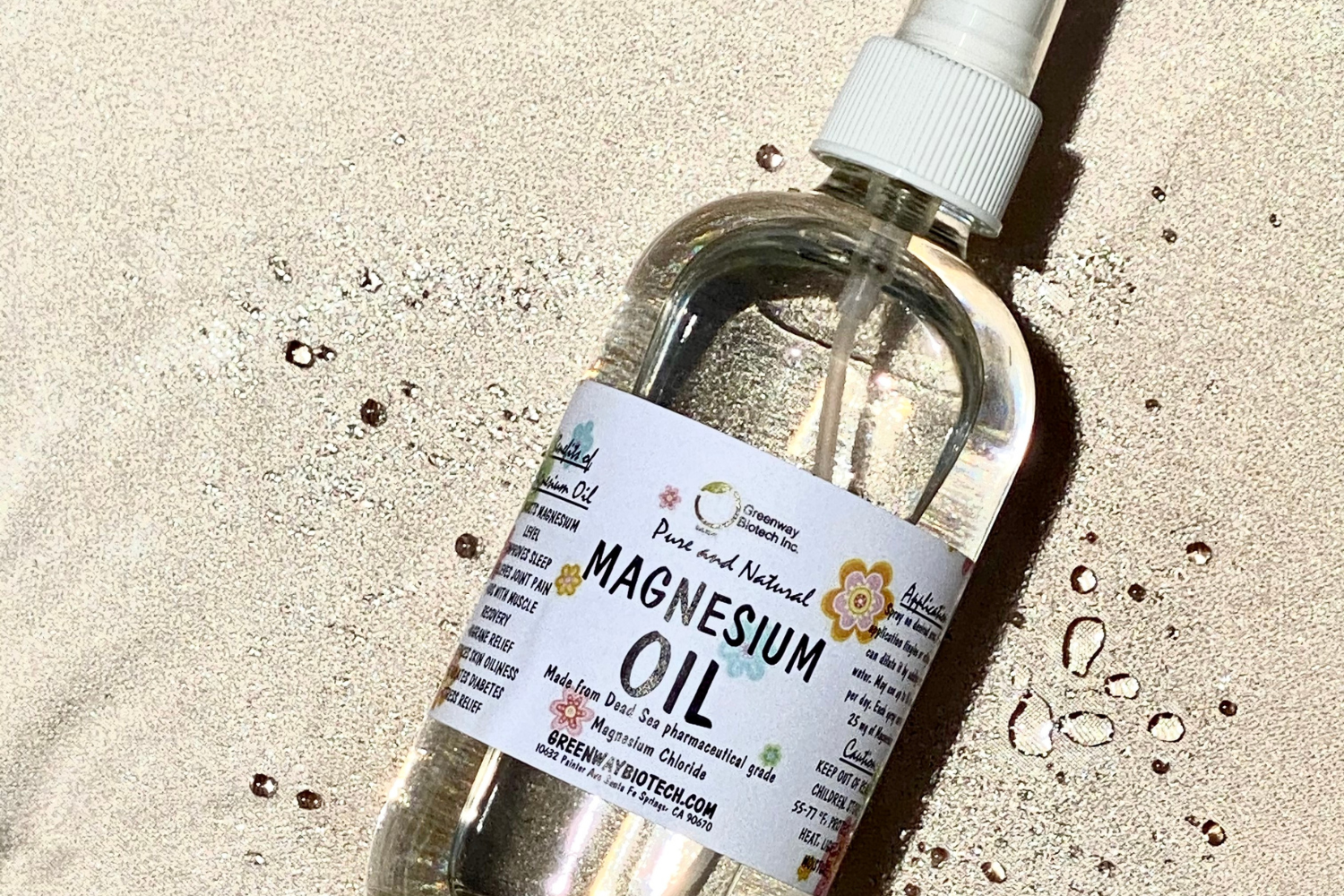Can Magnesium Oil Really Improve Your Painful Nerves?
•Posted on June 16 2022

Magnesium oil is a liquid form of magnesium chloride that offers an optimal way to increase your magnesium levels. It can be used on your skin.
But did you know that this essential mineral also helps reduce nerve pain? In this article, we discuss the benefits of magnesium and its impact on nerve pain.
Recommended for You:
What is Magnesium?

Magnesium is an essential mineral found in the human body and is required for more than 300 biochemical reactions in the body.
It is found naturally in whole grains, green leafy vegetables, nuts, and legumes.
However, it's often lacking in most diets due to poor diet choices as well as overconsumption of processed foods that lack nutrients like vitamins and minerals.
Magnesium has several functions:
-
Maintains normal muscle and nerve function
-
Keeps the heart rhythm steady
-
Supports a healthy immune system
-
Keeps bones strong
-
Helps regulate blood sugar levels
-
Promotes normal blood pressure
-
Involved in energy metabolism
A deficiency of magnesium can lead to many health issues, including muscle spasms and tics, restless leg syndrome, migraines, and depression.
Related Post: Can Magnesium Help Relieve Your Migraines?
Magnesium supplements are therefore recommended for people who suffer from anxiety or insomnia because they help stabilize moods. They may also help prevent migraine headaches if taken daily.
*Note this is not medical advice and you are advised to speak with your doctor before making any changes to your supplement routine.*
What Causes Nerve Pain?

Nerves are the fibers in the body that carry electrical signals between the brain and spinal cord (central nervous system) and all parts of the body (peripheral nervous system).
Therefore, any damage to them will likely result in some form of nerve pain.
Nerve pain or neuralgia is typically caused by inflammation in the nerves themselves or surrounding tissues such as muscles, ligaments, or tendons around those nerves.
Common causes of nerve pain include:
-
Injuries — such as a broken leg or surgery on a joint/muscle, brain damage
-
Conditions affecting blood flow — like heart disease or atherosclerosis (narrowing of the arteries)
-
Autoimmune diseases — such as lupus
-
Certain infections — including HIV/AIDS, Lyme disease, hepatitis B or C, and shingles
-
Nerve pressure due to surgery
-
Cancer
Other factors that may increase the risk of developing nerve pain include:
-
Diabetes
-
Obesity
-
Excess alcohol consumption
What Are the Common Symptoms of Nerve Pain?

If a nerve becomes damaged, this can lead to several different symptoms. These are often referred to as "neuropathic" pain or neuropathy because they involve nerves in the body sending pain signals.
Some common symptoms of nerve pain include:
-
Tingling or numbness in the arms or legs
-
Shooting or stabbing pain
-
Weakness or paralysis
-
Burning sensation
-
Joint pain
-
Loss of coordination
-
Muscle cramps or spasms
-
Nerve inflammation
Magnesium Oil Benefits for Nerve Pain

Neuropathic pain is difficult to treat with traditional pain medications like opioids because they don't affect the source of the problem.
Magnesium oil is gaining popularity as an alternative treatment for neuropathic pain.
It may be helpful because the mineral has been shown to have anti-inflammatory effects on nerve cells. This may help prevent further damage to these cells and improve their function.
Related Post: What You Need to Know About Chronic Inflammation
As a liquid form of magnesium chloride, it is absorbed through the pores, providing relief from symptoms related to stress and anxiety as well as muscle soreness and spasms.
How Do You Use Magnesium Oil?

Most people take magnesium supplements, but there are other ways to get more into your system.
One way is through topical application of "magnesium oil" on the body using a magnesium spray or even directly onto painful areas.
Related Post: How to Make Magnesium Oil Using Magnesium Chloride Powder
This method works especially well for nerve pain because it allows you to reach areas that may be hard to reach by mouth such as your feet or ankles.
It can also be used on sore muscles and joints which will help with inflammation from exercise or work-related stressors like sitting at a desk all day long!
Improve Your Wellness with Magnesium Oil
One of the easiest ways to get more magnesium is by using magnesium oil topically on your skin.
With Greenway Biotech Inc. magnesium spray, the mineral is absorbed quickly through your skin and diffused directly into your bloodstream, helping increase circulation and reduce inflammation and nerve pain including sciatica.
Our magnesium oil—made from pharmaceutical-grade magnesium chloride that comes from the Dead Sea— contains the highest concentration of magnesium compared to other sources.
Shop our magnesium oil above and step up your wellness routine.
Comments
0 Comments
Leave a Comment